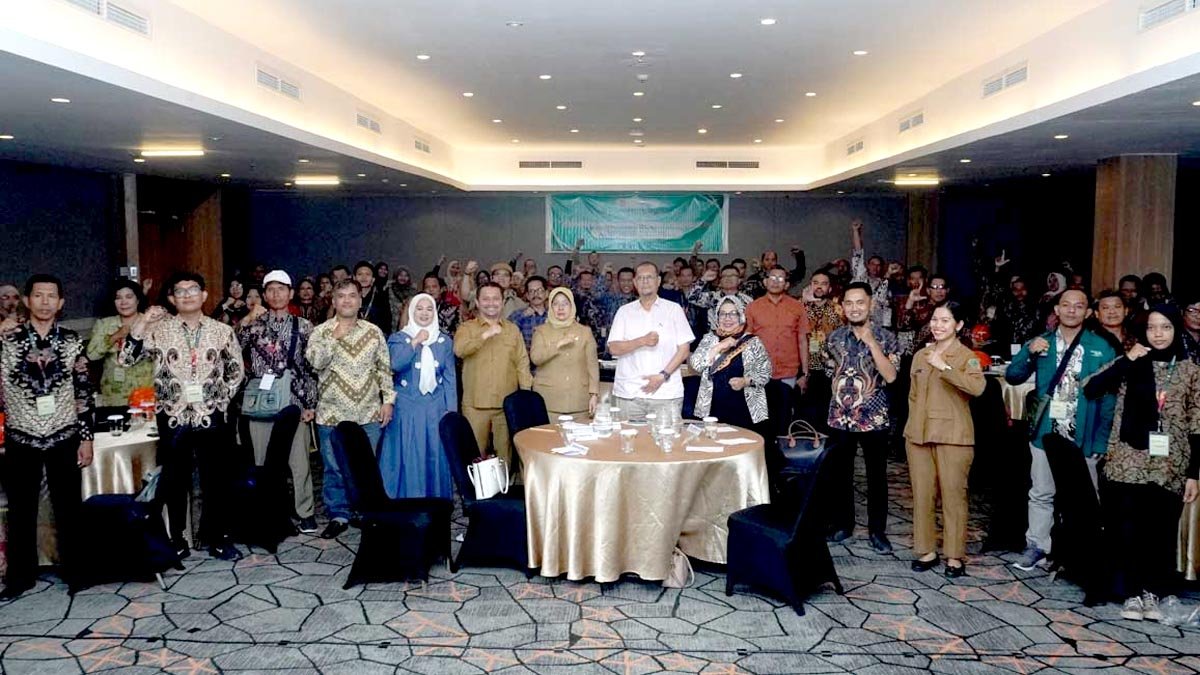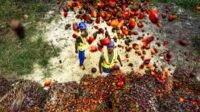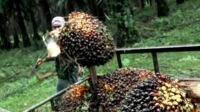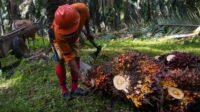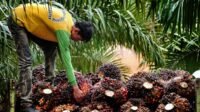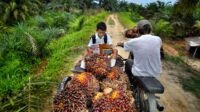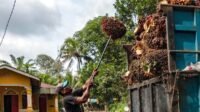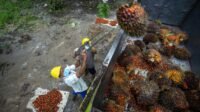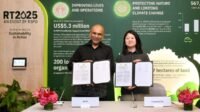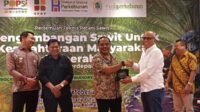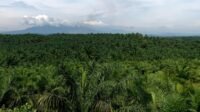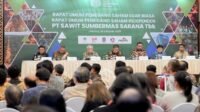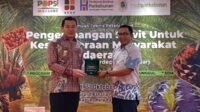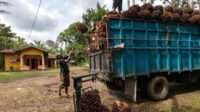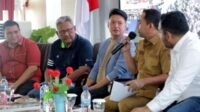PALMOILMAGAZINE, MEDAN — Efforts to strengthen sustainability practices in Indonesia’s palm oil sector continue to gain momentum. The Palm Oil Plantation Fund Management Agency (BPDPKS), in collaboration with the Directorate General of Plantations (Ditjenbun) under the Ministry of Agriculture, has resumed its Indonesian Sustainable Palm Oil (ISPO) training program for smallholders and field facilitators in North Sumatra.
The latest training session was held from July 14 to 20, 2025, at AIHO Hotel Medan (formerly Radisson Hotel), gathering 56 participants—including farmers and facilitators—from Batubara and South Labuhanbatu Regencies. Divided into two classes, participants engaged in four days of intensive in-class learning, followed by a one-day field visit.
The field trip took place at the Sustainable Palm Oil Farmers Plantation of Bintang Simalungun (PPKSBBS) in Tanah Jawa, Simalungun—a notable example of ISPO principles applied at the smallholder level.
The training was officially opened by M. Zakir Syarif Daulay, Head of the North Sumatra Provincial Office of Plantations and Livestock. In his remarks, he emphasized ISPO’s critical role in enhancing farmer welfare while ensuring long-term sustainability. “Oil palm smallholders must be equipped with the right knowledge to maintain both quality and yield in their production,” he said in a press release received by Palmoilmagazine.com, Wednesday (July 23, 2025).
He further noted that the training aims to improve smallholder productivity and global market competitiveness.
Henry Marpaung, Director of PT Koompasia Enviro Institute—the training organizer—explained that the program was designed using a strategic and practical approach. “We brought in experienced trainers who present structured ISPO material, complete with visual aids and a real-life visit to a certified smallholder plantation,” he said.
Sabrina Pulungan, Head of Food Crops, Horticulture, and Plantations for North Sumatra Province, highlighted the event’s importance in strengthening farmer networks. “This training provides an effective platform for collaboration toward better plantation practices,” she noted.
Local government support was also evident. Susilistiawati Ritonga, Head of Agriculture and Plantations in Batubara Regency, described the training as a firm commitment to sustainable palm oil. “Palm oil remains a leading sector contributing significantly to our economy. However, it faces challenges—especially regarding environmental and governance issues. ISPO offers a solution to address these concerns,” she said.
One participant expressed appreciation for the comprehensive and practical nature of the training, stating it broadened their understanding of ISPO as a vital guideline for sustainable palm oil farming.
This ISPO training initiative marks a long-term strategy to build a smallholder palm oil ecosystem that is not only productive but also environmentally sustainable and socially responsible. (P2)

